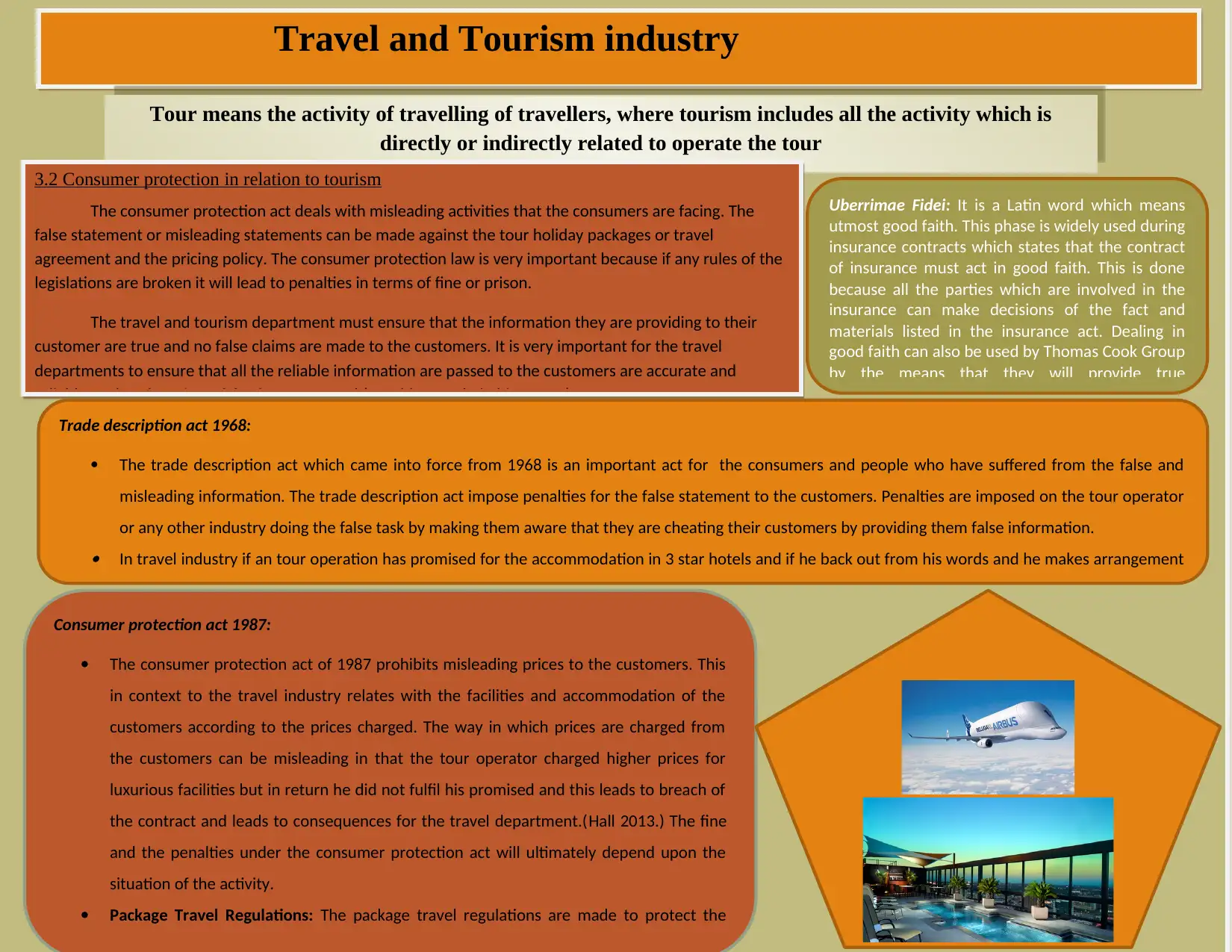An Analysis of Consumer Protection in the Tourism Sector
VerifiedAdded on 2023/04/04
|1
|611
|99
Report
AI Summary
This report delves into the crucial aspects of consumer protection within the tourism industry. It begins by establishing the historical context of tourism, highlighting its evolution from early travel practices to the modern era. The report then focuses on key legislations, including the Consumer Protection Act and the Trade Description Act, examining their roles in safeguarding consumer rights and preventing misleading practices. It analyzes the concept of 'Uberrimae Fidei' and its significance in ensuring fair business practices within the travel sector, particularly concerning insurance contracts. Furthermore, the report explores the Package Travel Regulations and their contribution to protecting consumers. The report emphasizes the penalties associated with violations of these regulations, underscoring the importance of ethical conduct and accurate information provision within the travel and tourism industry. The report's objective is to provide a comprehensive understanding of the legal framework that governs consumer protection in tourism, ensuring fair practices and safeguarding consumer rights.







![[object Object]](/_next/static/media/star-bottom.7253800d.svg)